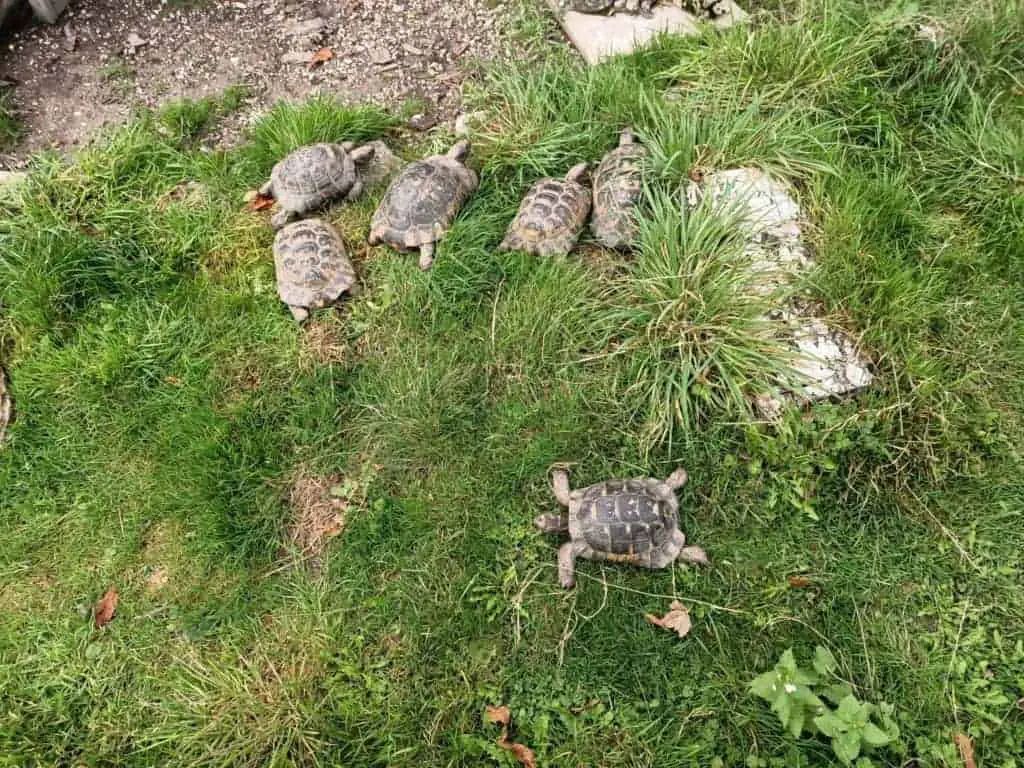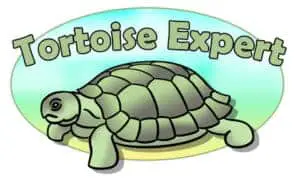
If you’re thinking of buying a tortoise you might make assume it is better to buy the youngest tortoise possible, probably because it seems likely that the smaller they are the cheaper they will be. And whilst this is almost certainly true in the majority of cases, price alone should not dictate which tortoise you choose to buy
Hatchling Failure Syndrome
Most reputable breeders will not sell a tortoise until it is at least 2 or three months old. This gives them time ensure they are in a good routine of eating and drinking enough to continue to grow healthily.

A hatchling will also likely be very unstable on his or her feet, leaving them vulnerable to falling over and being unable to right themselves.
So again a good minimum baseline age to sell/buy a tortoise is a few months old. Having said that, even a tortoise who has passed the two or three month mark is not immune to failings either on the part of the breeder/seller or the owner.
There is a phenomenon known as ‘Hatchling Failure Syndrome’ which refers to a hatchling that dies notwithstanding the best efforts of the new owner. This can of course be very frustrating and disheartening if you find yourself taking on a tortoise like this.
People in this situation report their tortoise seeming fine for the first few weeks of ownership, only for their condition to rapidly deteriorate, ostensibly for no obvious reason.
So what is the reason for this?
Well, the truth is that it is difficult to say, but it would seem the blame should most likely be placed at the feet of the breeder. The theory goes that improper practises in the first few months of life do lasting damage to the tortoise, that manifests as they continue to grow.
This could be anything from providing a poor diet to inadequate humidity, which leads to irreparable internal development.
Thankfully such cases are in the minority, however it is worth bearing in mind before you default to buying a hatchling, because clearly this might not be the best option. If you do choose to go down this route, be sure to thoroughly vet the breeder before you buy to ensure they know what they are doing, and will therefore have done right by the tortoise.
It should be noted that there are probably a few rare instances where genetic weakness is at least partly to blame for hatchling failure syndrome, but it is almost impossible to predict this. You’d simply have to chalk this up to bad luck if you bought a tortoise that died as a result of this.
Buying an Older Tortoise
In some ways buying an older tortoise, one that is over a year old for example, is a safer bet because you can be sure they have overcome the potential to succumb to ‘Hatchling Failure Syndrome’, which is a pretty good indicator that they have been well cared for.
However besides this, older or adult tortoises aren’t any easier or harder to take care of than hatchlings, in fact in some ways they are more challenging. A healthy healthy hatchling can be considered just as ‘hardy’ as an adult, given that they both have to fend for themselves in the wild in more or less the same way. Indeed hatchlings are not cared for by their mother once they have hatched, and are left to fend for themselves on day one.
An older tortoise will require more space, more food, a more time consuming cleaning regime, a longer period of hibernation to name just a few of their demands. Whereas a hatchling, being smaller, requires these on a smaller scale.
So The Best Age to Buy?
If you can find a tortoises somewhere in the region of 6 months to a year old, then in many ways you have the best of both worlds. The tortoise will be old enough to have overcome the dangers of hatchling failure syndrome, but young enough not to overwhelm you in the amount of resources they require.
This way you can gradually adapt to your new pet, and they will be young enough that they can adapt to you. You’ll be better prepared for their increasing demands as time goes on, whilst benefiting from their relatively small size and demands at this early age.
Rehoming a Tortoise
Whilst we’re on the subject of buying tortoises, if at all possible you should ‘rehome’ a tortoise rather than buy from ‘new’, as there will be people who have been gifted hatchlings and do not wish to continue caring for them, or perhaps other people whose circumstances have changed and can no longer care for their tortoise.
Doing so will of course reduce unnecessary instances of hatchling failure syndrome, and hopefully kerb the activities of unscrupulous breeders. Get in touch with your local rehoming charity for more details.

